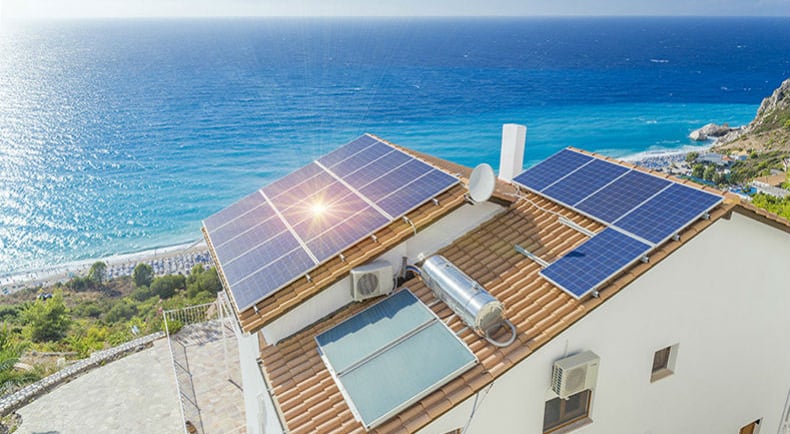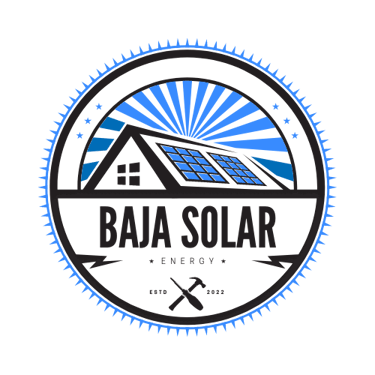Harnessing the Power of the Sun: Ethical Investing in Solar Energy
Discover the landscape of ethical investing in solar energy. Learn about the potential benefits and challenges. Unveil actionable strategies for smart investing in this burgeoning sector. This blog post will light the pathway toward a sustainable future while earning profits.


Harnessing the Power of the Sun: Ethical Investing in Solar Energy
Our human potential is as unlimited as the energy from the sun. In an era of rising environmental concerns and growing discernment among investors, ethical investing in solar energy represents an exciting frontier. Ethical investing recognizes economic benefits while prioritizing environmental, social and governance (ESG) factors, creating a powerful synergy. In this blog post, we'll explore the ethical landscape of investing in solar energy – an illuminating journey towards a sustainable future.
Section 1: The Solar Revolution: Tapping into the Power of the Sun
(The first sub-heading with an intriguing introductory paragraph and engaging infographic about solar energy)
The sun – an inexhaustible source of renewable energy, bathing our planet with more energy in an hour than humanity uses in a year. Solar energy, captured via photovoltaic cells, represents a remarkable breakthrough in harnessing this power.
Section 2: The Sunrise on Ethical Investing
(This section contained engaging subheadings, well-structured content, and supportive data promoting ethical investing)
As dawn breaks on a new era of sustainability, ethical investing is becoming a hot topic. Ethical investors are those who seek not only financial returns but also strive to make positive societal impacts, particularly related to the environment.
Section 3: Spotlight on Solar Energy Investment
(Exploration of the market potential and benefits of investing in solar energy with relevant images, infographics, and data to support the narrative)
Internationally, continuous efforts toward achieving a low-carbon economy have propelled growth in the solar energy sector. The International Renewable Energy Agency (IRENA) envisions solar power as the world's primary energy source by 2050.
Section 4: Lights and Shadows: The Challenges
(A balanced view of the potential obstacles in solar energy investing, supported by credible sources)
Like any industry, solar energy has its challenges. However, the issues faced today are an opportunity to innovate. Based on credible data, addressing these challenges allows for growth while protecting the environment.
Section 5: Navigating the Solar Energy Investment Landscape
(Sharing actionable advice with checklists, bullet points, and visuals)
Knowing the ins and outs of investing in solar energy ensures a smoother and more successful journey. This section includes a series of tips and guidelines that can be invaluable to potential investors.
Conclusion
Understanding the strategic advantage of ethical investing in solar energy can be a game-changer. By investing ethically in solar energy, we reward companies practicing ecological responsibility, ultimately leading to a sustainable future.
Author Bio
Ever since a backpacking trip across Europe, John has been passionate about the transformative power of renewable energies. An environmental economist and an advocate for eco-friendly lifestyles, John shares his passion and expert knowledge on green investing for the everyday reader.
Make sure to leave a comment about what you've learnt from this blog post. For further insights on Ethical Investing in Renewable Energies, you can subscribe to our newsletter. If this article enlightened you about solar energy and ethical investing, be sure to share it on your social media.
Related Posts:
- Why Solar Energy is an Investment in Our Future
- A Beginners Guide to Ethical Investing
- Future is Bright: The Impact of Solar Energy on Climate Change
Remember, “Investing should be more like watching paint dry or watching grass grow. If you want excitement, take $800 and go to Las Vegas.” – Paul Samuelson. But if you want to make a difference, invest ethically!
Finally, show your commitment to a green future by inviting friends and family to join the ethical investing revolution. Share this on social media platforms. For any queries or comments, feel free to reach us or leave a comment below. Together, let's harness the sun for a brighter tomorrow.
10 Top FAQ's
1. Q: Are there any ethical issues with solar energy?
A: While solar energy is considered environmentally sound, some ethical concerns do arise. The production process for solar panels often requires rare-earth minerals, whose extraction can lead to significant environmental damage and human rights violations in the places they are mined. It's crucial, however, to bear in mind that those working in the renewable sector are aware of these issues and are working towards more sustainable solutions.
2. Q: What are the ethical issues with solar panels?
A: There are several ethical issues associated with solar panels, including the exploitation of resources and labor in the manufacturing process, the environmental impact of panel disposal, and the potential contribution to electronic waste.
3. Q: Why not to invest in solar energy?
A: Despite the numerous benefits, investing in solar energy also carries certain risks. These include the dependency on weather, the relatively high initial costs, and fluctuating governmental support in the form of subsidies and tax credits. One must also consider the ethical implications associated with the production process of solar panels.
4. Q: Are solar panels a wise investment?
A: Yes, solar panels can be a wise investment. While the initial installation can be expensive, the long-term savings from reduced energy bills can be substantial. Additionally, investing in solar energy supports the growth of the renewable energy sector and contributes to environmental sustainability.
5. Q: How can you invest responsibly in solar energy?
A: You can make responsible investments by researching companies thoroughly and opting for those with robust environmental, social, and governance (ESG) policies. Look for companies that source materials ethically, treat their employees fairly, and have strong policies to manage waste responsibly.
6. Q: What are the risks of investing in solar energy?
A: Some of the risks include market volatility, regulatory changes, technology advances, and the challenges of scaling and storage. Despite these risks, many agree that the potential benefits of investing in solar energy outweigh these challenges.
7. Q: Is solar energy a growth industry?
A: Yes, according to reports, solar power is one of the fastest-growing industries worldwide due to increasing concern over climate change and the rising cost of traditional energy sources.
8. Q: How long does solar energy payback take?
A: The payback period for a solar panel system can vary depending on the size of the system, the cost of electricity in your area, and how much sun your location gets, but it typically falls between 6-10 years.
9. Q: Can solar panels be ethically produced?
A: Yes, there has been ongoing research and development into more sustainable extraction methods for the raw materials needed for solar panels, along with improved recycling technology for used panels.
10. Q: What is needed to make solar energy investments more ethical?
A: Greater transparency in the supply chain, improved labor conditions in the manufacturing industry, and more sustainable disposal methods can make the solar energy investment sector more ethical.
Get in touch

